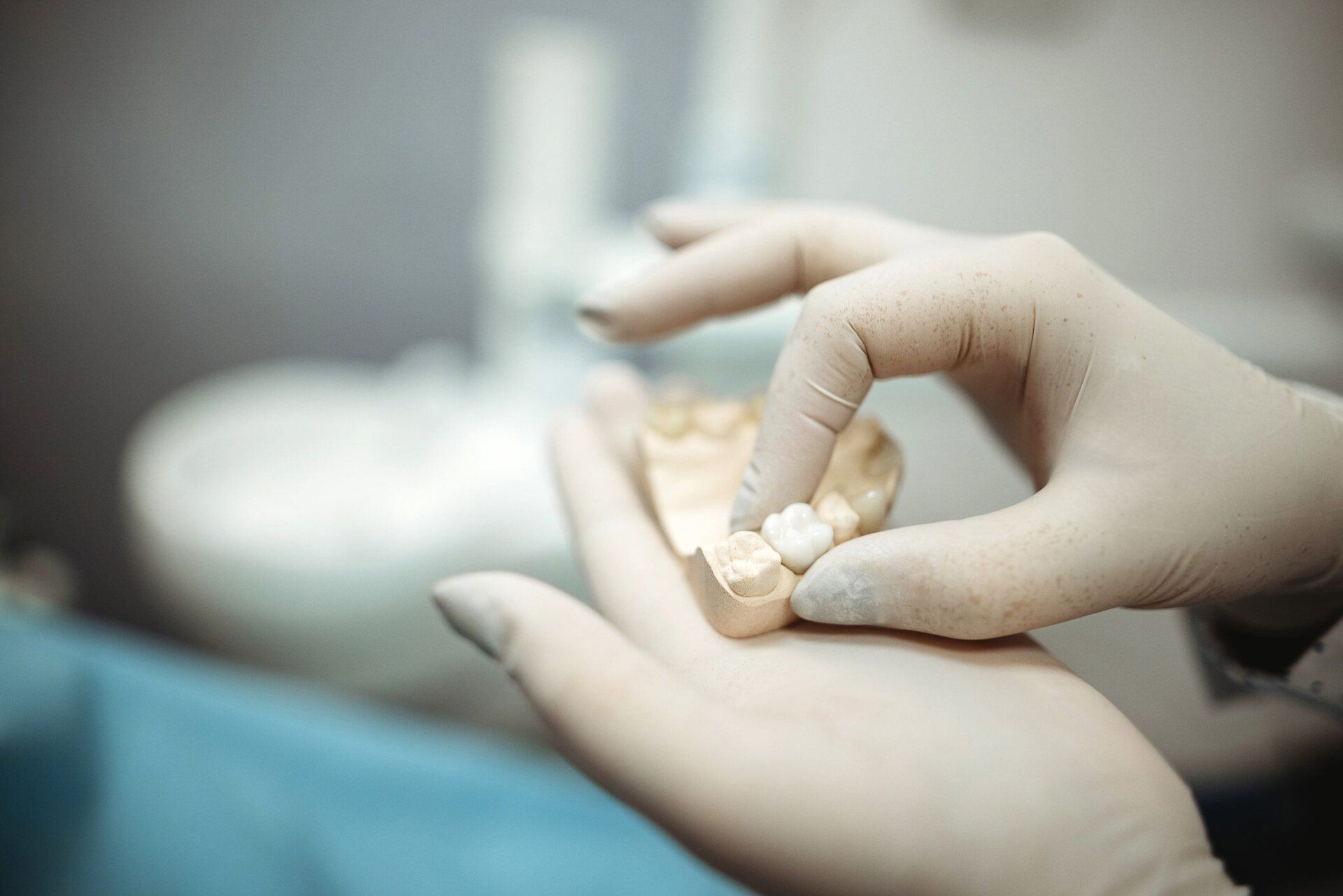Two Locations to Better Serve You
Periodontal Disease: An FAQ
The gums inside your mouth serve the important purpose of holding your teeth in place. When these gum tissues become infected, this is known as periodontal disease. According to the CDC, periodontal disease is fairly common.
For example, just over 47 percent of adults over the age of 30 have some degree of periodontal disease. This percentage increases as one ages. Over 70 percent of adults over the age of 65 have periodontal disease.
If you want to know more about this common dental problem, discover the answers to four frequently asked questions about periodontal disease.
1. What Causes Periodontal Disease?
Periodontal disease is also referred to as periodontitis. Poor oral hygiene habits are the most common cause of this gum disease. When one does not brush or floss as they should, this usually results in plaque buildup on the teeth. When a dentist doesn't remove the plaque, it hardens and causes tartar to form under the gumline .
This tartar contains bacteria that works its way underneath the gums. Having a dental hygienist clean the teeth is the only way to remove this tartar. The continual buildup of plaque and tartar eventually causes gum tissue inflammation, also known as gingivitis. Left untreated, gingivitis turns into periodontal disease.
Symptoms of periodontal disease include red or swollen gums, bad breath, loose teeth, and receding gums. Bleeding gums during brushing or flossing is also a sign of periodontal disease.
Some people are at a greater risk of periodontal disease than others. Those who smoke, experience hormonal changes, or take medications that cause dry mouth are more likely to get periodontal disease. Genetics can also increase one's risk of this gum disease.
2. How Do You Treat Periodontal Disease?
Prevention is key with periodontal disease. Most people who practice good oral hygiene will be less likely to get periodontal disease. However, since and tartar can be difficult to remove, have a dentist clean the teeth twice a year. Those with severe cases of tartar buildup may need more frequent cleanings.
When a dental hygienist cleans below the gumline , this is called scaling and debridement. Dentists may also recommend a prescription-strength medicated mouthwash or oral antibiotics to help remove the bacteria. A surgical procedure may be necessary for severe cases of periodontal disease.
Some of these surgical procedures include:
- Flap surgery . The dentist lifts the gums back in order to remove the tartar.
- Bone and tissue graft . The dentist performs this procedure to encourage regeneration of bone or gum tissue.
- Guided tissue regeneration . The dentist uses barrier membranes to help repair defects.
Good oral hygiene increases the chances of success following any type of treatment for periodontal disease.
3. What Complications Result From Periodontal Disease?
Untreated periodontal disease causes different kinds of complications. These complications include damage to the periodontal ligament and to the alveolar bone, which are both important for maintaining good oral health. Tooth loss is another complication of periodontal disease.
When one loses their teeth, they are not able to chew food adequately, which results in poor nutrition. Tooth loss can also cause the other teeth in the mouth to shift out of position.
One of the worse complications of untreated periodontal disease is a painful infection of the gums called acute necrotizing ulcerative gingivitis (ANUG). This condition can destroy the gums between the teeth as well as cause large sores to form on the gums. Untreated gum disease can also be linked to cardiovascular disease, preterm labor, and lung infections.
4. Who Treats Periodontal Disease?
A dentist is the best person to see for periodontal disease treatment. If you are at increased risk of periodontal disease, or you think you may already have it, contact New England Dental Health Services P.C. Along with dental cleanings, our dentists provide a wide range of treatments in a comfortable and compassionate environment.
Business Hours:
- Mon - Fri
- -
- Sat - Sun
- Closed





Financing & Interest-Free Payment Plans Available: Wells Fargo, CareCredit

